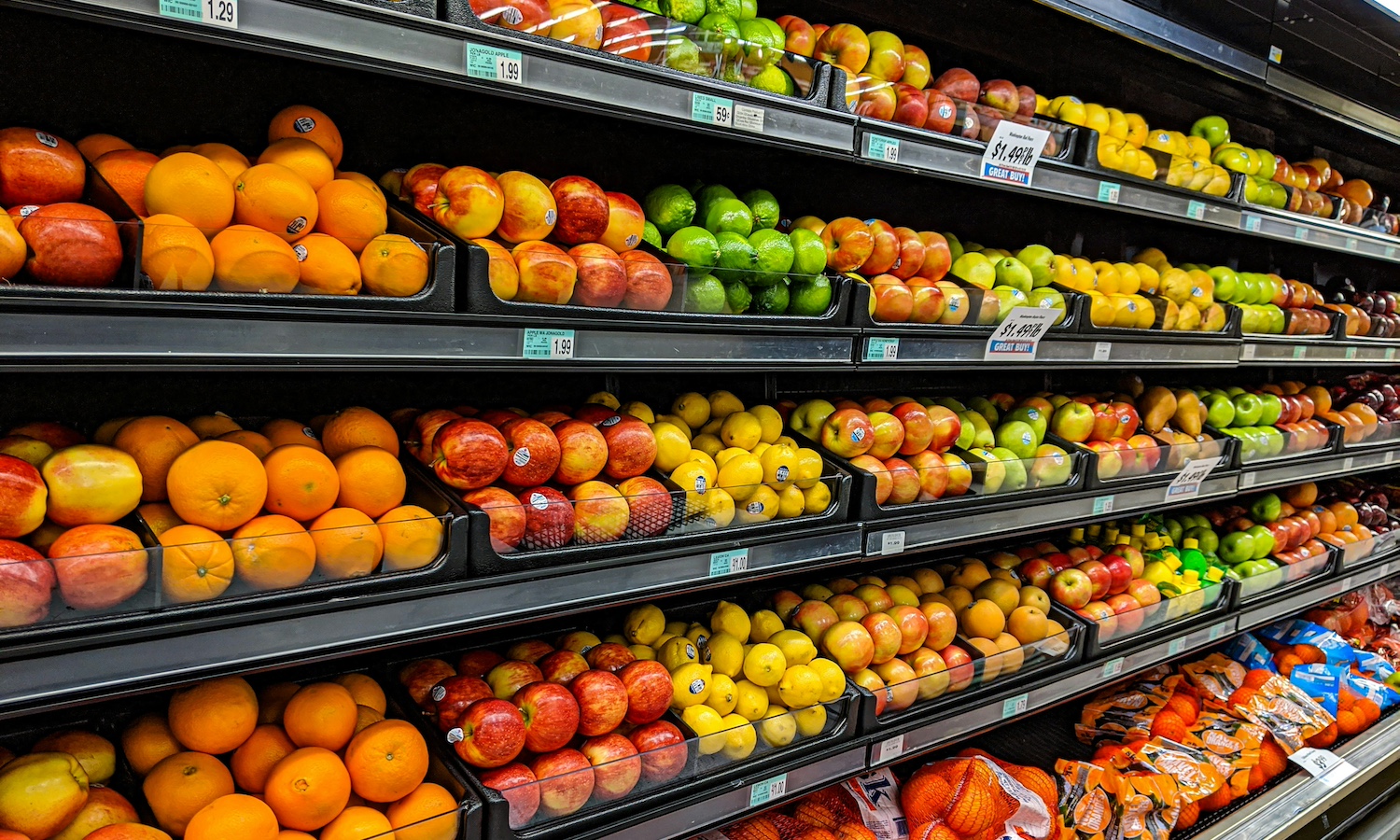TASK 2 (DISCUSS BOTH VIEWS): SUBSIDIES FOR FRUITS AND VEGETABLES
Some people think that the government should subsidise fruit and vegetables to make healthy food more affordable. Others argue that the government should tax unhealthy food instead. Discuss both these views and give your own opinion.
Sample Answer
Advocates of a green diet claim that government subsidies should be prioritised for the provision of fruits and vegetables to increase the affordability of healthy food options. Others, however, assert that the state should impose taxes on unhealthy food to deter consumption. This essay will discuss both viewpoints and explain why I gravitate towards a balanced approach in conjunction with fervent support for rising public health awareness.
Supporters of state subsidies for fruits and vegetables point to the paramount importance of a plant-based diet. Numerous longitudinal research studies in the fields of medicine, nutrition, and public health have conclusively stated that a diet rich in plant-based constituents—such as fruits, vegetables, and seeds—is conducive to improved physical health, mental sharpness, and overall longevity. Making green options widely available to the public, according to this reasoning, means better public health, leading to increased standards of living and reduced burdens on the healthcare system. However, since meat has always been a staple in most cultures’ diets, people may not consume fruits and vegetables as their main daily inputs even when they are heavily subsidised, potentially rendering governmental efforts wasteful. Furthermore, the convenience of packaged options and the widespread availability of fast food present additional hindrances to the adoption of green-based diets.
Those advocating for taxation on unhealthy food cite the deterrent effect of such legislation. Admittedly, once enacted, there would immediately be fewer consumers of fast food, alcoholic beverages, or canned goods due to the inflated prices. In the short term, this would lower unhealthy food consumption, thereby improving public health, lowering the risks of chronic diseases, and reducing obesity rates. Nonetheless, such a taxation plan could, in the long run, raise concerns about personal freedoms. The reason for this is that many might view this legislative move as infringing upon their fundamental rights, within which unhealthy food consumption arguably falls, leading to potential public backlash and dissatisfaction.
In conclusion, I believe that a balanced approach should be adopted, with governments continuing to subsidise plant-based options while simultaneously taxing unhealthy food. This would not only improve accessibility to healthy food but also deter the consumption of less nutritious alternatives. To complement this, the state should raise awareness about healthy eating, green lifestyle choices, and the benefits of home-cooked meals. Only through such a holistic approach can public health be improved sustainably.
Marking by Chat GPT Plus
TỪ VỰNG HAY
Some people think that the government should subsidise fruit and vegetables to make healthy food more affordable. Others argue that the government should tax unhealthy food instead. Discuss both these views and give your own opinion.
Advocates of a green diet claim that government subsidies should be prioritised for the provision of fruits and vegetables to increase the affordability of healthy food options. Others, however, assert that the state should impose taxes on unhealthy food to deter consumption. This essay will discuss both viewpoints and explain why I gravitate towards a balanced approach in conjunction with fervent support for rising public health awareness.
Supporters of state subsidies for fruits and vegetables point to the paramount importance of a plant-based diet. Numerous longitudinal research studies in the fields of medicine, nutrition, and public health have conclusively stated that a diet rich in plant-based constituents—such as fruits, vegetables, and seeds—is conducive to improved physical health, mental sharpness, and overall longevity. Making green options widely available to the public, according to this reasoning, means better public health, leading to increased standards of living and reduced burdens on the healthcare system. However, since meat has always been a staple in most cultures’ diets, people may not consume fruits and vegetables as their main daily inputs even when they are heavily subsidised, potentially rendering governmental efforts wasteful. Furthermore, the widespread availability of fast food presents additional hindrances to the adoption of green-based diets.
Those advocating for taxation on unhealthy food cite the deterrent effect of such legislation. Admittedly, once enacted, there would immediately be fewer consumers of fast food, alcoholic beverages, or canned goods due to the inflated prices. In the short term, this would lower unhealthy food consumption, thereby improving public health, lowering the risks of chronic diseases, and reducing obesity rates. Nonetheless, such a taxation plan could, in the long run, raise concerns about personal freedoms. The reason for this is that many might view this legislative move as infringing upon their fundamental rights, within which unhealthy food consumption arguably falls, leading to potential public backlash and dissatisfaction.
In conclusion, I believe that a balanced approach should be adopted, with governments continuing to subsidise plant-based options while simultaneously taxing unhealthy food. This would not only improve accessibility to healthy food but also deter the consumption of less nutritious alternatives. To complement this, the state should raise awareness about healthy eating, green lifestyle choices, and the benefits of home-cooked meals. Only through such a holistic approach can public health be improved sustainably.
Vocabulary
- government subsidies should be prioritised – nên ưu tiên trợ cấp chính phủ
- gravitate towards a balanced approach – nghiêng về phương pháp cân bằng
- in conjunction with fervent support – cùng với sự ủng hộ mạnh mẽ
- paramount importance of a plant-based diet – tầm quan trọng hàng đầu của chế độ ăn thực vật
- longitudinal research studies in the fields of – nghiên cứu dài hạn trong các lĩnh vực
- making green options widely available to the public – phổ biến thực phẩm xanh đến công chúng
- rendering governmental efforts wasteful – khiến nỗ lực chính phủ trở nên lãng phí
- widespread availability of fast food – sự phổ biến rộng rãi của thức ăn nhanh
- adoption of green-based diets – việc áp dụng chế độ ăn xanh
- deterrent effect of such legislation – tác dụng răn đe của luật pháp như vậy
- raise concerns about personal freedoms – dấy lên lo ngại về quyền tự do cá nhân
- potential public backlash and dissatisfaction – phản ứng tiêu cực và sự bất mãn từ công chúng
- improve accessibility to healthy food – cải thiện khả năng tiếp cận thực phẩm lành mạnh
- raise awareness about healthy eating – nâng cao nhận thức về ăn uống lành mạnh
- holistic approach can public health be improved sustainably – cách tiếp cận toàn diện giúp cải thiện sức khỏe bền vững
✔ DÀN Ý
Mở bài:
Tranh luận giữa việc trợ cấp trái cây rau củ hay đánh thuế thực phẩm không lành mạnh.
→ Tác giả chọn giải pháp cân bằng, kết hợp nâng cao nhận thức sức khỏe.
Thân bài:
1. Ý kiến ủng hộ trợ cấp thực phẩm lành mạnh:
- Ăn thực vật tốt cho sức khỏe, trí tuệ, tuổi thọ.
- Trợ cấp giúp nhiều người tiếp cận thực phẩm xanh hơn.
- Nhưng: thịt vẫn là thói quen, fast food phổ biến → khó thay đổi hành vi ăn uống → có thể phí công.
2. Ý kiến ủng hộ đánh thuế thực phẩm không lành mạnh:
- Tăng giá → giảm tiêu thụ đồ ăn nhanh, đồ uống có cồn.
- Góp phần cải thiện sức khỏe cộng đồng.
- Nhưng: dễ bị phản đối vì vi phạm quyền tự do cá nhân.
3. Quan điểm tác giả – giải pháp cân bằng:
- Vừa trợ cấp thực phẩm lành mạnh, vừa đánh thuế đồ không tốt.
- Song song đó: nâng cao nhận thức về ăn uống lành mạnh, sống xanh, nấu ăn tại nhà.
→ Cách tiếp cận toàn diện, bền vững để cải thiện sức khỏe cộng đồng.
Kết bài:
Giải pháp kết hợp + nâng cao nhận thức là hướng đi hiệu quả nhất để bảo vệ sức khỏe xã hội một cách lâu dài.


